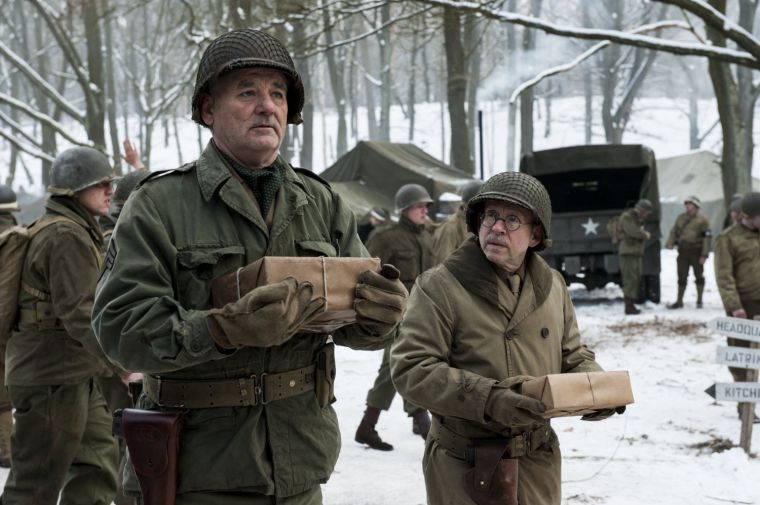‘The Monuments Men’ a less than artful tale of WWII
February 12, 2014
“The Monuments Men”
Directed by: George Clooney
Starring: George Clooney, Matt Damon, Bill Murray, John Goodman, Cate Blanchett
Grade: D
For all of its earnest, heavy-handed themes on the great importance of culture and its preservation, “The Monuments Men” is, ironically, a forgettable and miscalculated film that works against the significance of cinematic art and its role in modern history as such.
George Clooney — now with three directing turns under his belt after the great “Good Night, and Good Luck.” and the mediocre “Leatherheads” — takes a big misstep in his shifting career path with the incompetent and blatantly unsure execution behind the reasonably interesting story of “The Monuments Men.”
During the final days of World War II, Frank Stokes (Clooney) is fervent about recovering stolen art from the Nazis. He assembles a team (Matt Damon, Bill Murray, John Goodman, Jean Dujardin, Bob Balaban and Hugh Bonneville) to journey past enemy lines in order to rescue important cultural artifacts before the Nazis, in their inevitable defeat, destroy what they have taken. On separate paths, the Monuments Men search with little luck until they locate Claire Simone (Cate Blanchett), a French spy posing as a Nazi, who holds valuable information on the locations of the missing art.
On the surface, “The Monuments Men” has much in its favor: a stellar cast, a fascinating true story and clearly passionate devotion to the project from Clooney as director, writer and star. Despite these merits, the film is undone many times over by a plethora of bafflingly poor filmmaking decisions.
The most obvious flaw is the lack of a consistent tone. “The Monuments Men” has been marketed as a historical caper of sorts — the presence of Clooney and Damon, who previously teamed up for “Ocean’s Eleven,” only adds to this. But the film — grappling with jarringly serious and upbeat elements — awkwardly oscillates between dramatic historical account and lighthearted war comedy. It takes about a half-hour to realize that this film has no idea what it wants to be.
Along with a clear tone, a narrative rhythm is also entirely absent. The film flounders and stumbles through each scene, some of which lack any purpose at all — early on Murray and Balaban’s characters enjoy smoking with a lone and frightened German soldier in an uncomfortably long and unfunny scene. And with a script stuck in inertia, fractured even further by multiple storylines — most of which are fairly uneventful — experienced editor Stephen Mirrione couldn’t save the slightest bit of coherence.
Even more disappointingly, the impressive cast is caught in the whirlwind of clumsy filmmaking, and not one talented actor is able to transcend the ineptitude happening behind the camera. The divided storyline hinders not only the film’s narrative pulse, but also the ability of its characters to seem like human beings instead of plot devices.
Additionally, “The Monuments Men” has a generic look and feel, thanks to irritatingly stale production value and lousy cinematography void of creativity. Seemingly designed to be unremarkable, the film is a crushingly disappointing waste of talent and a promising story idea.
For all of its flaws, “The Monuments Men” does have its moments — Murray’s character receives a touching vinyl message from his grandchildren, and the climax is far more exciting than any other part of the film. But these instances are too few to be considered saving graces.
Delivering neither thrills nor laughs nor historical lessons free of Clooney’s obligatory speeches on the value of human achievements, “The Monuments Men” is a stunning example of human failure.



